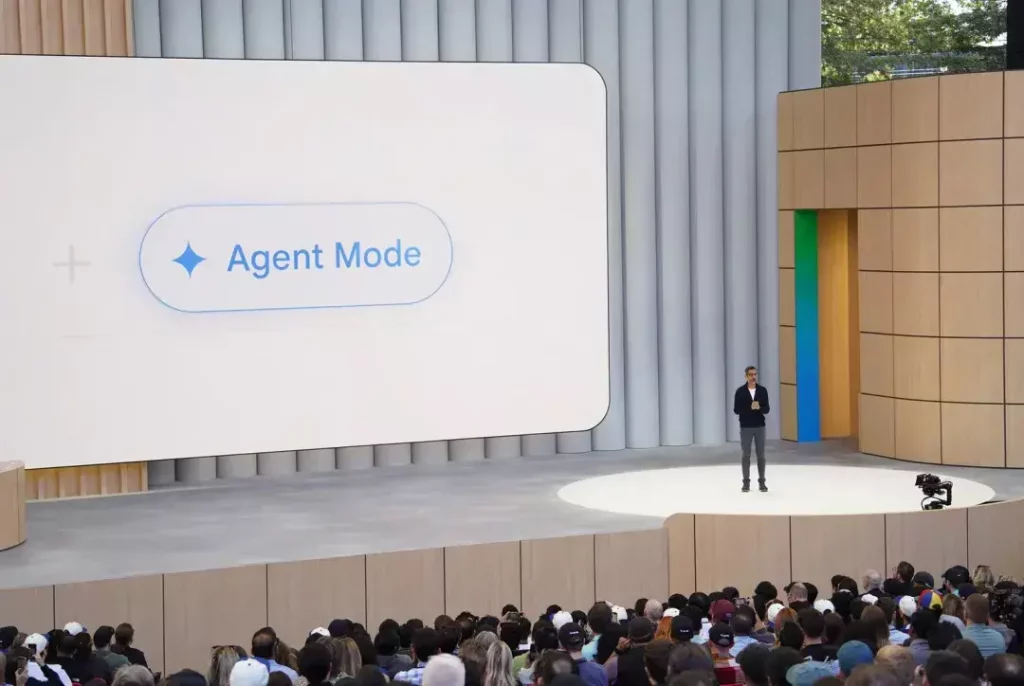
Google Introduces ‘Agent Mode’ to Let Users Make AI Do Tasks Like Searching Flats on Rent
In a groundbreaking move, Google has introduced ‘Agent Mode’ to its Gemini AI, allowing users to make the AI perform multi-step tasks independently. This revolutionary feature was announced by Google CEO Sundar Pichai at the recent IO 2025 event. With Agent Mode, users can now instruct Gemini AI to perform complex tasks, such as searching for a flat on rent in a specific area and within a particular price range. The AI will then search the web on its own, presenting the results to the user, and even allowing them to book the desired property using Project Mariner.
Agent Mode is a significant advancement in the field of artificial intelligence and natural language processing. It enables users to communicate with the AI in a more conversational manner, giving them the power to dictate their tasks without needing to manually specify each step. This feature is expected to transform the way we interact with technology, making it more intuitive and user-friendly.
The announcement of Agent Mode has generated significant buzz in the tech community, with many experts hailing it as a major breakthrough. “Agent Mode is a game-changer,” said Dr. Rachel Kim, a leading AI researcher. “It’s an innovative approach that enables users to leverage the power of AI for complex tasks, without needing to have extensive technical knowledge.”
So, how does Agent Mode work? Essentially, users can instruct the AI to perform a task by speaking or typing a natural language query. The AI then understands the intent behind the query and breaks it down into individual steps, executing each step independently. For example, if a user asks the AI to find a flat on rent in a specific area, the AI will search for available properties that match the user’s criteria, including price range, location, and amenities.
One of the most impressive aspects of Agent Mode is its ability to integrate with other Google services. For instance, when searching for a flat on rent, the AI can access Google Maps to provide users with detailed information about the location, including nearby public transportation options and local amenities. This level of integration is expected to make the user experience more seamless and convenient.
Agent Mode is currently available in Chrome and Search, with plans to expand the feature to other Google services in the future. The feature is powered by Google’s AI technology, which has been trained on vast amounts of data to enable it to understand and execute complex tasks.
The implications of Agent Mode are far-reaching, with potential applications in various industries, including real estate, healthcare, and finance. For instance, in the real estate sector, Agent Mode could be used to assist homebuyers in finding their dream property, taking into account factors such as location, price range, and amenities. In healthcare, the feature could be used to help patients manage their medical records, schedule appointments, and receive personalized health advice.
While Agent Mode is an exciting development, it’s not without its challenges. One of the biggest concerns is the potential for bias in the AI’s decision-making process. For instance, if an AI is trained on biased data, it may perpetuate those biases in its decision-making. Google has acknowledged this concern and is working to address it through rigorous testing and evaluation of its AI models.
In conclusion, the introduction of Agent Mode is a significant milestone in the development of artificial intelligence. This feature has the potential to transform the way we interact with technology, making it more intuitive and user-friendly. As Agent Mode continues to evolve, we can expect to see innovative applications across various industries, improving the lives of millions of people around the world.






